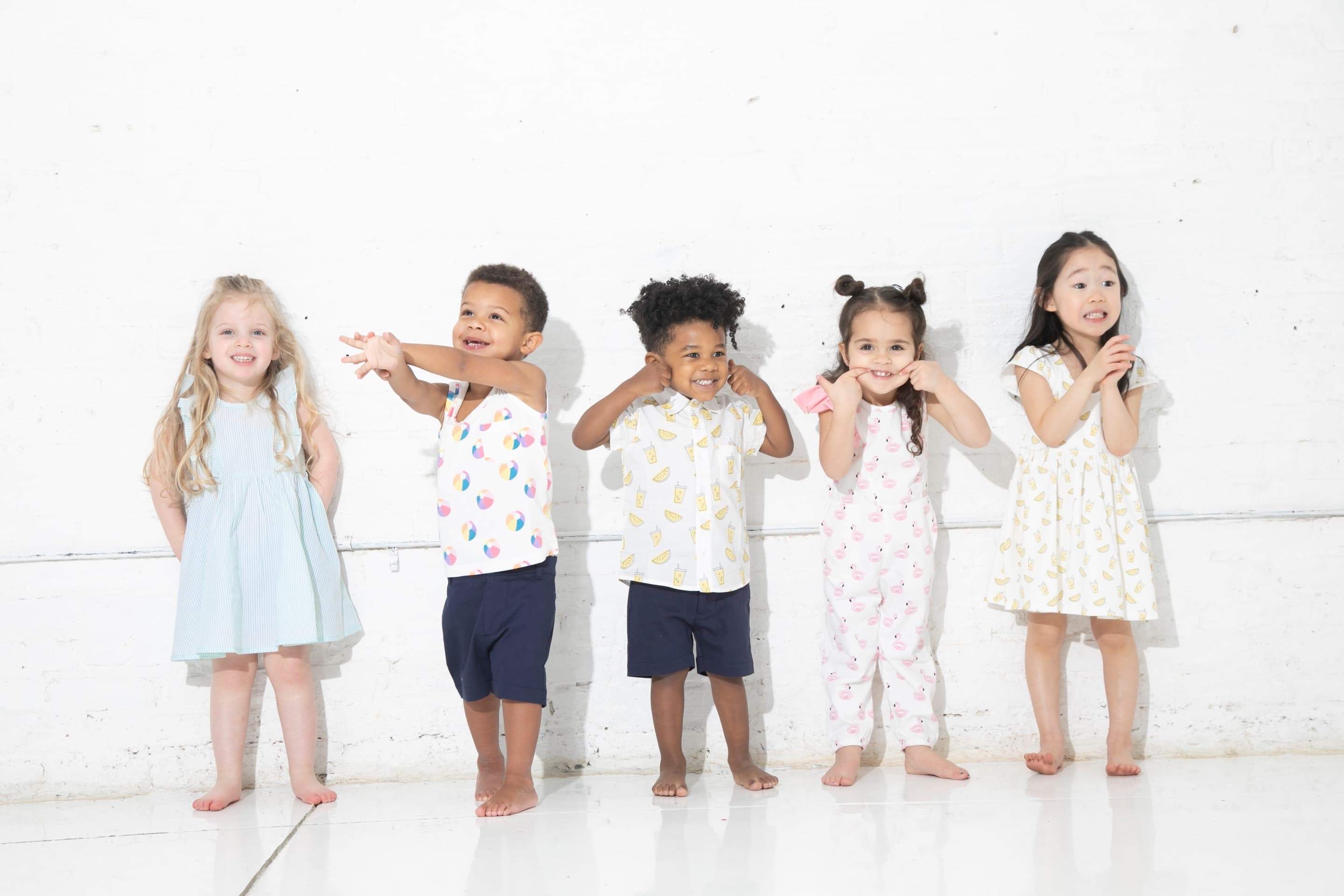Here's What You Need to Know About Toddler Separation Anxiety

Here's a #MomLife moment most toddler mamas can relate to: You're halfway out the door when a full-on tantrum erupts. You're about to be late for that big meeting, but your little one just will not let go of your leg (cue the drool running down the leg of your pants. Lovely.). Welcome to the world of toddler separation anxiety!
This can be a tough thing for parents to deal with — but if you're experiencing it now, know this: It's a common issue (you can't fault your toddler for wanting more time with Mommy, after all!) and one that will get better over time.
We spoke with Megan Handley, a Chicago-based psychotherapist who specializes in child and adolescent therapy, to learn all about toddler separation anxiety — and what you can expect (and do!) if your little is showing signs of it.
Monica + Andy: How common is toddler separation anxiety?
Megan Handley: 'Separation anxiety is common in toddlers. They heavily rely on parents for their care and well being, and separation from the parent can, therefore, feel very frightening to a toddler. Toddlers' brains are still developing the ability to regulate and soothe emotions, so anxiety can be difficult to cope with for little ones.'
M+A: When does it typically strike?
MH: 'Each child develops on their own schedule. Depending on a family’s life circumstances, separation anxiety can begin in the first year or not show up until much, much later in grade school.'
M+A: What behaviors are trademarks of toddler separation anxiety?
MH: 'Children can express anxiety in a wide variety of ways: clinging to caregivers, temper tantrums, crying when attention is removed from them momentarily or when caregiver leaves the room, fear of/reluctance with strangers, refusal to leave home, nightmares, disengagement, somatization of anxiety expressed in complaints about stomach, headache, etc.'
M+A: How can parents address separation anxiety at home?
MH: 'Allow ample time for transitions/goodbyes and create a predictable routine around separation. And stick to it! If the child doesn’t have a transitional object
M+A: Is there a point where parents should consider seeking help to address a toddler's separation anxiety?
MH: 'If a child becomes consistently extremely distraught and is not able to be soothed, and/or their behavior interferes with their functioning and day to day life of the family, speaking to a professional can help.'
M+A: Are there certain factors that make toddlers more likely to feel separation anxiety?
MH: 'If a family is experiencing stress or changes in schedule, a child may begin to exhibit more separation anxiety. Some family stressors that may provoke or exacerbate separation anxiety are illness, moving, rushed/busy family schedules, conflict between partners/spouses, divorce, death of a family member or pet, changing schools, and introduction of a new sibling.'
M+A: Is there anything else parents of toddlers should know about separation anxiety?
MH: 'The toddler years can be tough for parents and caregivers. Be patient with yourself and with your child. Have age-appropriate expectations. A toddler’s brain is not as well developed as an adult’s and simply cannot do the same things that an adult can. Give yourself space to care for your own feelings. A crying and clingy child can bring up a lot for a parent. It’s normal to feel overwhelmed, frustrated, or anxious. If you are feeling distressed or are not able to engage with your child’s feelings from a place of empathy, take a moment to step away and soothe yourself before you attend to your child.'
About the expert: Megan Handley is a mental health therapist specializing in the treatment of children and teens with 17 years of combined experience in community and clinical work. Through imaginative and creative play, art, crafts, talking, and engaging in therapeutic movement, she works with clients to help them better understand their emotions, bodies, and relationships. She is currently practicing at Agave Studio in the Humboldt Park neighborhood of Chicago and can be reached at megan@agavechicago.com.
Any questions about your child's behavior? Be sure to chat with his or her doctor or a mental health professional.













